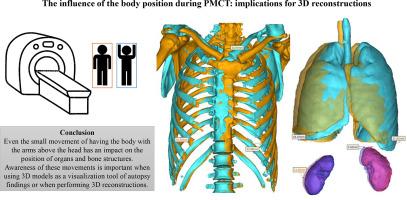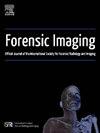The influence of the body position during PMCT: Implications for 3D reconstructions
IF 1
Q4 RADIOLOGY, NUCLEAR MEDICINE & MEDICAL IMAGING
引用次数: 0
Abstract
Objectives
variations in the positions of organs and bones resulting from two different body positions during PMCT were investigated.
Methodology
Forty-four bodies were CT-scanned in two positions and compared using 18 landmarks and 27 distances.
Results and conclusion
Differences below 1 cm were observed for all measurements. The most significant variation was observed along the cranio-caudal plan (z). Awareness of these movements is important when using 3D models for visualization or 3D reconstructions.

PMCT 期间身体位置的影响:对三维重建的意义
结果和结论所有测量值的差异均低于 1 厘米。沿头颅-尾椎平面(z)观察到的差异最大。在使用三维模型进行可视化或三维重建时,意识到这些移动非常重要。
本文章由计算机程序翻译,如有差异,请以英文原文为准。
求助全文
约1分钟内获得全文
求助全文
来源期刊

Forensic Imaging
RADIOLOGY, NUCLEAR MEDICINE & MEDICAL IMAGING-
CiteScore
2.20
自引率
27.30%
发文量
39
 求助内容:
求助内容: 应助结果提醒方式:
应助结果提醒方式:


